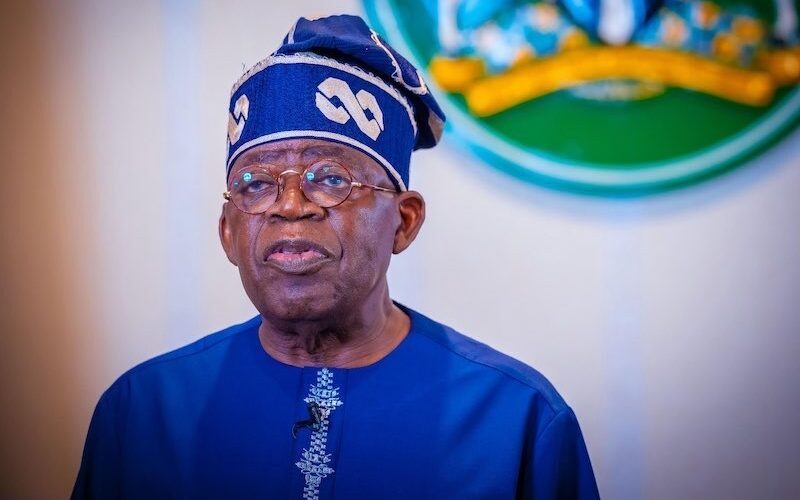•Commodity risks rejections in EU markets
•Oduwole: It’s both formidable challenge and transformative opportunity for our country
James Emejo in Abuja
The federal government and stakeholders in the cocoa value chain, yesterday met to assess the progress so far made towards complying with the European Union Deforestation Regulation (EUDR) on sustainability.
The EU, which accounts for over 60 per cent of Nigerian cocoa exports had set the December 31, 2020 deadline (later extended to December 2025) for Nigerian cocoa farmers to comply with the regulation which bordered on sustainable cocoa trade under the EUDR Compliance framework.
The deadline applies to the broader EUDR, which includes cocoa and other commodities, and was extended from an earlier date to allow for more preparation time.
Failure to comply could lead to rejection of Nigerian cocoa exports to Europe, among other punitive measures.
However, speaking at the Nigeria-EU Cocoa Roundtable on EUDR Compliance in Abuja, Minister of Industry, Trade and Investment, Dr. Jumoke Oduwole, described the development as both a “formidable challenge and a transformative opportunity” for the country.
She said the regulation was a call to action as it remained a “pivotal moment for Nigeria’s cocoa industry”.
Oduwole said the roundtable was more than a high-level dialogue but a “platform to align national ambition with global standards, as well as a crucial step in ensuring the resilience, sustainability, and competitiveness of our cocoa value chain”.
The minister pointed out that the the EU deforestation regulation was reshaping the way agricultural commodities are traded globally.
She said, “But beyond that, Nigeria and this administration is at the forefront of climate change and climate justice, and what is important to is the use of our land for sustainability.
“So, without even an external project, this is something that is Nigeria first. As Mr. President has put it, always Nigeria first in this issue. We’re thinking first and then joining the rest of the world to see how we’re using our resources for the betterment of everybody.
“So, for Nigeria, Africa’s fourth largest cocoa exporter, it’s both a formidable challenge and a transformative opportunity.
“With the EU accounting for over 60 per cent of our cocoa exports, compliance is not optional. It is an economic, environmental, and developmental imperative. And importantly, we have to support our domestic farmers and investors who are in this space.”
Also, Senior Special Assistant to the President on Agribusiness and Productivity Enhancement, Dr. Kingsley Uzoma, said the commodity remained a cornerstone of the country’s economic diversification agenda.
Yet, he said financing constraints remained a key challenge, with funding gaps limiting production growth, quality improvement, and compliance readiness.
He said cocoa represented a strategic non-oil export that fuels the country’s transition from petroleum dependency, adding that the cash crop exports recorded a 606 per cent increase in the last quarter of 2024.
Nigeria’ cocoa exports rose from about N171 in the last quarter of 2023 to N1.2 trillion, reflecting not only global demand but the resilience and potential of the country’s agricultural sector.
Uzoma said, “Cocoa is no longer just a commodity; it is a strategic lever in our economic transformation. This positions cocoa as a vital contributor, accounting for roughly 29 per cent of our total agricultural exports and 5.6 per cent of non-oil exports overall.”
He said the federal government remained committed to agricultural sustainability, value addition, and global trade standards.
He said the administration of President Bola Tinubu’s Renewed Hope agenda was creating an enabling environment that catalyses public-private partnerships, empowering communities, and driving a greener, and more prosperous Nigeria.
Uzoma noted that at the heart of the discussion was the EUDR, which prohibits the import of cocoa and other commodities linked to deforestation after December 2020.
However, the EU had provided a deadline extension to help countries like Nigeria adapt to the new regulations.
He explained that the new regulation required traceability, due diligence, and proof of deforestation-free supply chains, reinforcing environmental stewardship.
According to him, EUDR aligns with Nigeria’s green economy agenda, advancing its goals to combat climate change, preserve biodiversity, and build resilient agricultural systems.
It also drives innovation in traceability technologies such as blockchain and satellite mapping, while enabling stronger farmer support programmes that promote sustainable practices and higher yields without encroaching on forests.
The presidential adviser pointed out that Nigeria’s cocoa production supports over 300,000 smallholder farmers, who produce approximately 80 per cent of the country’s output and contribute about six per cent to the global supply.
In the 2023/2024 season, Africa produced 3.151 million metric tons of cocoa, with Nigeria accounting for 320,000 tonnes and aiming to increase production to 500,000 tons by 2025 through targeted interventions.
He said the figures not only underscored the scale of opportunity but also the urgency to explore and invest in cocoa production in the country.
Nevertheless, Uzoma said, “We must also confront the realities. While progress has been made, more needs to be done to fully establish effective compliance mechanisms.
“This underscores the importance of the extensive engagements held since December 2024 to align stakeholders and chart a clear path forward.
“Financing constraints remain a key challenge, with funding gaps limiting production growth, quality improvement, and compliance readiness.
“The Nigerian Agricultural Development Fund (NADF), though well-intentioned, is under significant budgetary strain. It is therefore important to note the potential value of innovative financing options, such as a dedicated cocoa sector credit line with flexible repayment terms, to provide timely and adequate support.”
According yo him, EUDR compliance presents transformative opportunities for Nigeria’s cocoa industry.
He said by “prioritising local processing, we can create jobs, retain more value within our borders, and shift from raw exports to high-value products such as chocolate, beverages, and cocoa butter.
“Revitalising aging plantations could deliver up to 50 per cent higher yields, reduce pressure on forests, and equip farmers with climate-smart practices.
“These advancements also position Nigeria to tap into climate finance and carbon credit schemes, potentially attracting significant international funding for eco-friendly initiatives, while engaging our youth in agribusiness as part of an inclusive growth strategy.
“To fully realise this vision, we are exploring options for effective partnerships to deploy digital compliance tools, farmer mapping systems, and traceability infrastructure that empower smallholders.
“We also welcome greater participation from private investors in the development of cocoa processing zones, where innovation and opportunity will combine to build sustainable, competitive supply chains.”
Uzoma said, “With our rich heritage in cocoa, producing an average of nearly 320,000 tons annually over the past decades, and a clear policy roadmap, we are poised to lead in sustainable agribusiness.
“Let us forge a new era of strategic partnership where Nigerian cocoa becomes a global symbol of sustainability, innovation, and shared prosperity.
“Together, we can build a deforestation-free future that uplifts farmers, protects forests, and strengthens trade ties across continents.”
Essentially, the EUDR aimed at ensuring that products placed on the EU market are deforestation-free.
To comply, Nigerian cocoa farmers need to implement robust traceability systems and due diligence procedures to prove their cocoa is deforestation-free, including measures to track the origin of their cocoa beans and verify that the land used for production was not recently deforested.
The onus is on stakeholders to utilise the time effectively to build the necessary systems and infrastructure to meet the requirements.
Chairman, National Taskforce on EUDR Compliance, Mr. Ajayi Olutobaba, however, said most exporters are already 60 per cent compliant to EUDR, adding that the challenge lies with legality/land use component which resides with state governments.
He said, “The European Union Deforestation Regulation (EUDR) presents both a significant challenge and a unique opportunity for Nigeria’s cocoa and agricultural sector.
“To remain competitive in the global market, we must act swiftly and decisively. Alignment across ministries, state governments, private sector actors, and international partners is not just important, it is essential.
“Sustainability is no longer optional, it is the future of trade. With unified action and a clear national framework, Nigeria can lead the way in sustainable cocoa production and secure its place in global supply chains.”
The post Cocoa Farmers Race to Meet EUDR Deadline on Sustainability by December appeared first on THISDAYLIVE.


